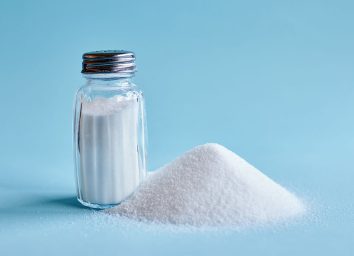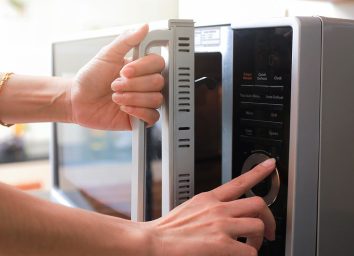Dangerous Side Effects of Having High Blood Pressure
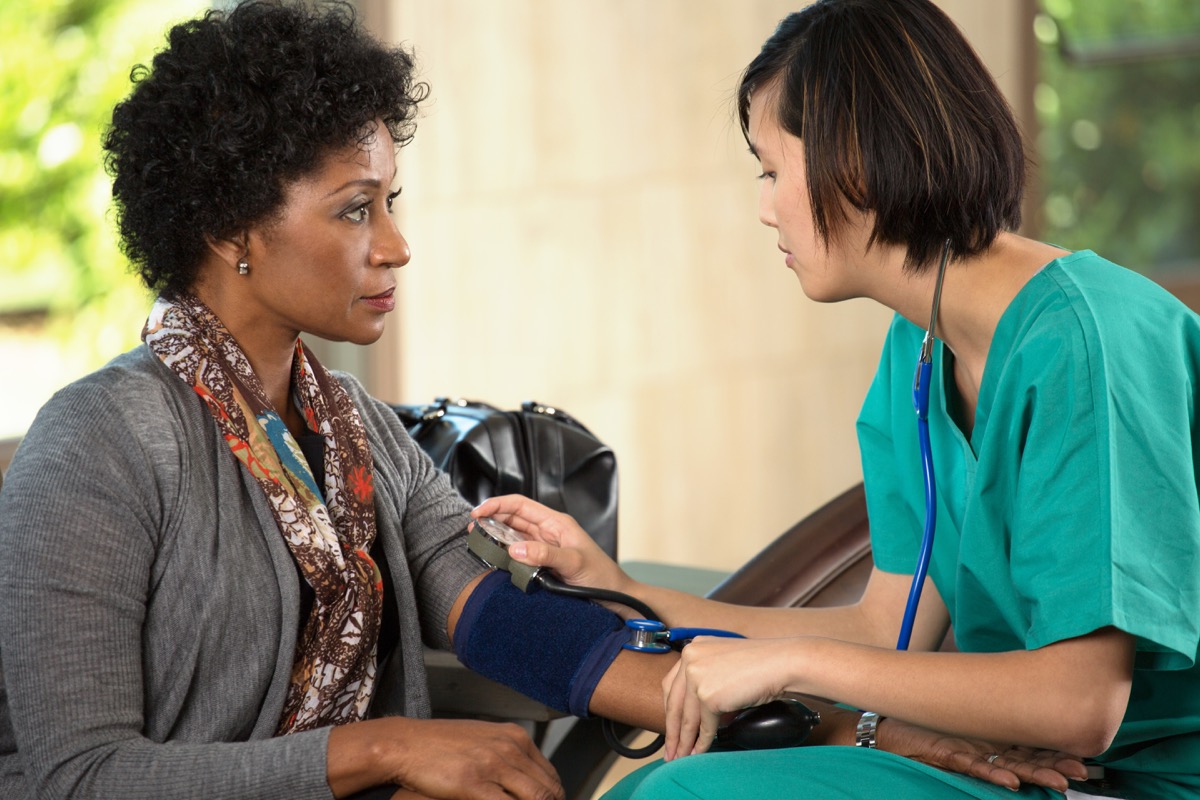
Nearly half of adults in the United States have hypertension, or high blood pressure, which the American College of Cardiology and the American Heart Association define as blood pressure at or above 130/80 mm Hg. Some of the side effects of high blood pressure levels can put you at risk for cardiovascular disease as well as various cardiac events, both of which can be fatal.
According to the Centers for Disease Control and Prevention (CDC), nearly half a million deaths in the U.S. included hypertension as a primary or contributing cause in 2018. Hypertension is primarily treated through medication, however, there are several lifestyle changes you can make right to help manage levels.
“By changing certain aspects of our lifestyle, it may be possible to lower blood pressure without the use of medications,” says Cedrina Calder, MD. “However, this may not be possible for everyone so medications may be needed as well.”
Below, you will see five side effects of having high blood pressure as well as simple ways you can get your levels in check. Then, be sure to read The 7 Healthiest Foods to Eat Right Now for additional tips on how you can make your diet healthier.
Heart problems

The number one telltale sign that your blood pressure is too high is heart pain.
“Too much pressure can damage the blood vessels that supply blood to the heart and cause a heart attack,” says Calder. “An increase in pressure can also make the heart work harder to pump and lead to heart failure.”
One way you can actively make strides toward lowering your blood pressure levels is by incorporating more healthy, plant-based foods into your diet. Calder recommends exploring the DASH (Dietary Approaches to Stop Hypertension) diet which was created specifically for those who need help managing their blood pressure levels.
“This eating plan promotes eating lots of fruits, vegetables, whole grains, lean meats, nuts, and seeds while limiting processed foods, sodium, and fatty and sugary foods,” she says.
For more, be sure to check out The Ultimate Guide to Exactly What Foods You Can and Can’t Eat on the DASH Diet.
Kidney issues
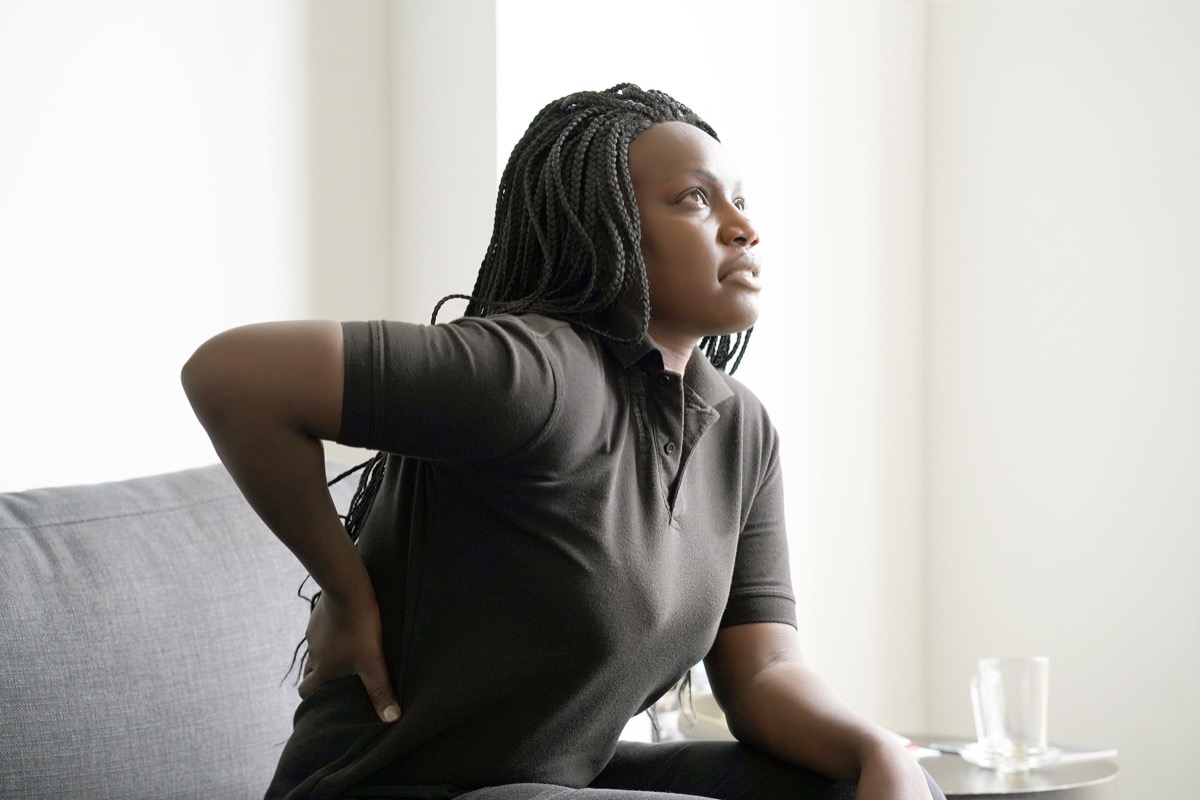
Over time, sustained high blood pressure levels can lead to various complications with the kidneys.
“High blood pressure can damage kidney arteries preventing the kidneys from working properly,” says Calder, noting that this can ultimately lead to kidney failure.
Another way you can lower your blood pressure naturally? Exercise. Calder recommends aiming for a total of 150 minutes of moderate physical activity each week, which includes walking and jogging.
For more tips, be sure to check out 8 Ways to Support a Healthy Immune System, According to Harvard.
Stroke
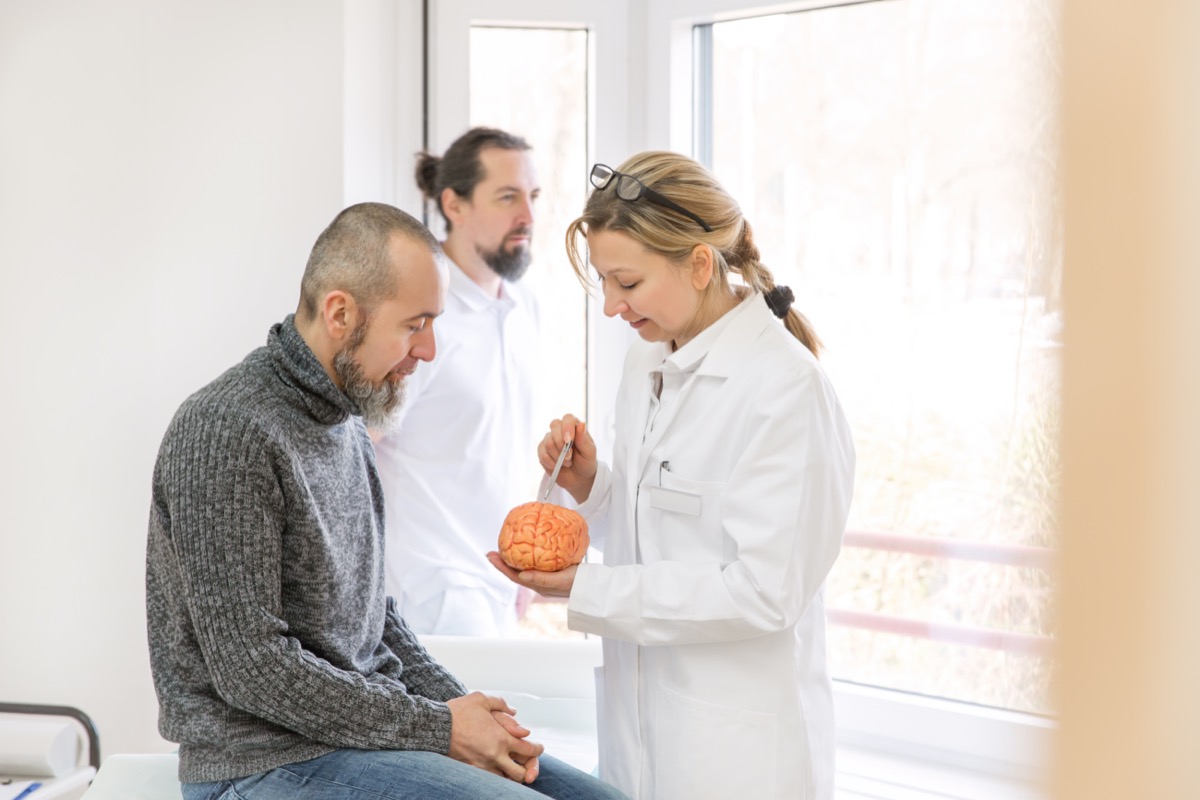
This side effect goes hand-in-hand with heart problems.
“High blood pressure can damage the blood vessels that supply the brain and cause blood clots or tears in the vessels resulting in a stroke,” says Calder.
Maintaining a healthy weight is key for managing blood pressure levels. Eating a predominantly plant-based diet and getting regular exercise can help you achieve this, Calder says.
“The foods that are best to eat with high blood pressure include 100% whole-grain foods, lean protein like chicken, turkey or fish, vegetables rich in color, and low-fat dairy,” she says. “People should avoid red meat, processed foods, sweets, foods with a lot of added sugar, and sugar-sweetened beverages.”
Problems with vision

If you notice you’re suddenly having issues with your vision, it’s possible your blood pressure levels are too high.
“Elevated blood pressure can cause temporary blurred vision or even result in permanent vision loss,” says Calder.
When it comes to managing blood pressure levels, it’s also important to manage your stress levels. As Calder points out, “managing your stress in healthy ways through self-care practices can help lower your blood pressure.”
Consider incorporating 20 minutes of light yoga into your routine, either just before bed or when you wake up in the morning. Meditation and breathing exercises are also effective ways to practice mindfulness daily.
Get even more healthy tips straight to your inbox by signing up for our newsletter!
Sexual dysfunction
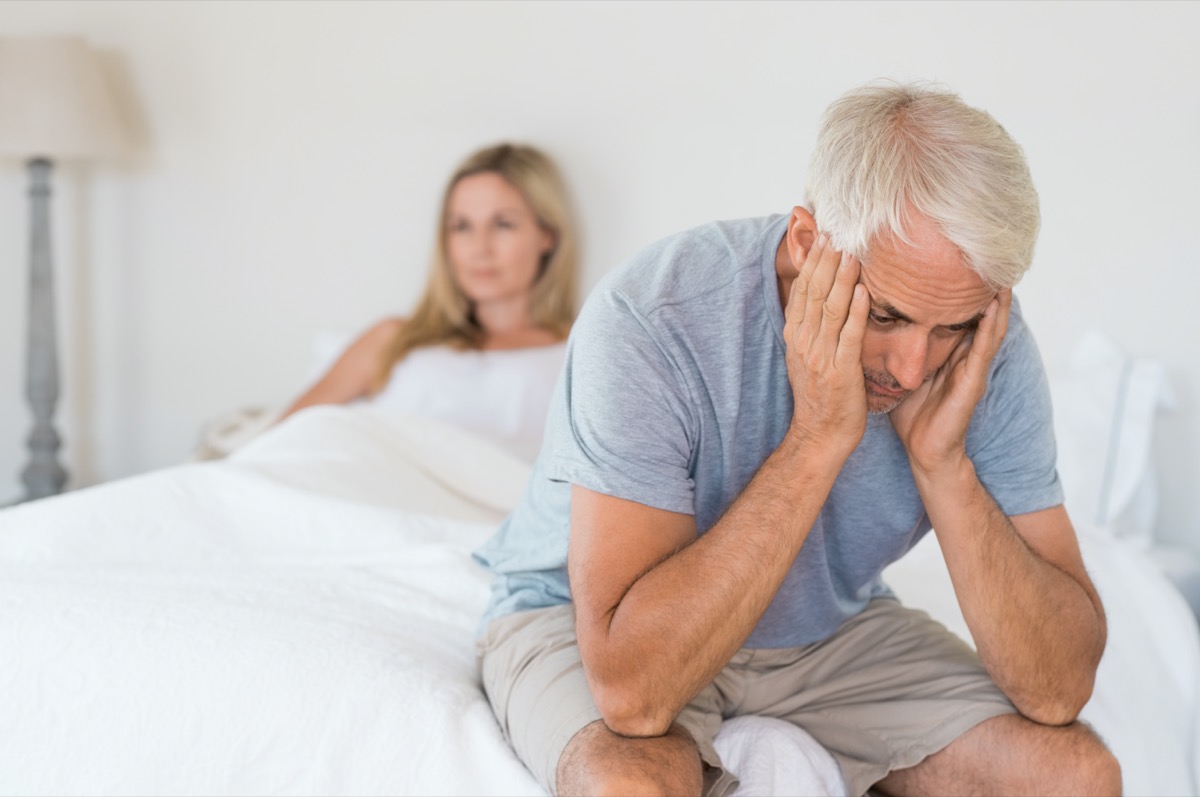
This is likely the least obvious side effect of having high blood pressure.
“High blood pressure can lead to sexual dysfunction in both men and women,” says Calder. “Men who have high blood pressure are at risk of developing erectile dysfunction.”
Conversely, women who have high blood pressure may experience loss of libido. If you eat healthy foods and exercise often, but regularly drink alcohol or smoke, this could be causing your blood pressure levels to elevate. Reducing the servings of alcohol you drink each week may help you lower these levels. Calder also advises taking measures to quit smoking.
“Speak with your healthcare provider about medications you can take and resources you can use to help you quit smoking,” she says.
For more, be sure to check out 13 Worst Foods for High Blood Pressure.
